
Last week, after almost a year-and-a-half, we wrapped up the longest and widest-ranging multi-author series in Popdose history — our epic survey of the AM Gold compilations. But after 72 installments, and seventeen years of pop history, we couldn’t just say goodbye without one last look back — a 30,000 foot overview of the series as a whole.
One thing we did learn: That we of the Popdose staff work well together. The collaborative aspect of this project has been a joy from start to finish, and has allowed us to examine the songs from a multitude of angles, with room for hardcore Cultural Studies analyses and fart jokes alike. Some of us were here every week, some of us would pop our heads in now and then, but everybody brought a unique point of view to the party, something fun, or thought-provoking, or both. I’ve said it before, I’ll say it again: This is the best band I’ve ever been in, and when y’all are hot, you’re hot.
Special thanks to the Man in the Gray Flannel Suit Hisself, Mr. Chris Holmes, who has been the driving force and organizing principle for this project. he is the one who has tracked down the videos and the single sleeves, who has sifted through the detritus of hundreds of emails to cobble together something resembling a coherent conversation every week. Take a bow, Chris — and a breather; God knows you’ve earned it.
Extra special thanks go to our crew of commenters. Even when there’s been disagreement, it’s been entertaining. The articles themselves have only been half the story; you do the rest. We do it all for you, and we couldn’t do it without you. So thanks again to all of our regulars, and to our rotating roster of guests — as well as to those of you whom we suspect of being sock puppets for washed-up pop stars who have no better way to fill the lonesome hours than Googling their own names. Everybody’s welcome, here at the House of Popdose.
—Jack Feerick
First, general observations. We’ve just taken a survey of music trends over seventeen years of chart pop, from the dawn of the rock’n’roll era to the brink of the New Wave. With full benefits of hindsight — what jumped out at you about the way popular music evolved between 1962 and 1979? Any surprises?
Dw. Dunphy – Musical homogenization. The more space was given for artists to expand and get wild, the less of it they took up. Of course this was through the AM radio filter, but to think that music would go from the doo-wop of the early-’60s to the Beatles and Bacharach/David’s peculiarities and then just get so comfortable with formula in the 1970s was surprising to me.
And lyrics got dumber.
Jack Feerick — Purely on a musicological level, I was a little surprised by how long country music remained a force in pop radio. The stuff was huge in the pre-rock era, of course; but by the time I started noticing music in the early 70s, the two streams were separate, with only occasional crossovers (Dolly and Kenny, of course, but also flukey things like ”I’m Not Lisa.”) But well in the 60s, pop stars like Bobby Darin and Brenda Lee were cutting sides with Nashville cats, and Skeeter Davis was hitting the pop charts.
You wouldn’t see that now. I think it would be accurate to say that, by this stage of the game, there is no longer a music industry, but rather several, operating in parallel. And that’s kind of a shame, I think.
Also: the score from Hair was friggin’ huge, and for a while everybody wanted in on it.
Jon Cummings – This sort of wrap-up column is a good idea — but for me, if there’s one thing I can take away from a close listening to ± 400 hits from these two decades, it’s that pop music can’t be wrapped up tidily. And certainly not by a series of compilations that, useful as they are, leave out a huge percentage of the most influential music of their times, from the Beatles, Stones and Who to Elton, Billy and (ahem) Barry. Even consuming what’s actually on these discs, one can’t help but be left with the bemused realization that pop is an eternally scattershot proposition. The minute you try to hang one, two, or 10 overriding themes or trends upon these collections, a song comes along that knocks down whatever you were thinking.
Thankfully, pop is a world of simultaneous surprise and consistency. How else to explain the evolution in style and substance from “Johnny Angel” in ’62 to “My Sharona” in ’79 … while also noting the direct line from early-’60s doo-wop and girl groups to “Sad Eyes,” or the presence of John Stewart and Dionne Warwick on both the ’63 and ’79 editions of AM Gold?
Lifton – The only real consistency in the series was in showing the evolution of R&B. Because they didn’t get the biggest names in pop and rock, you couldn’t see how the music evolved. It just went from the Four Seasons to “Hair” to country pop without any real context. But because you had enough great R&B music throughout the series, you could easily see how easily soul merged into funk and then into disco, stopping just short of the birth of hip-hop.
If you had to name a favorite year of this collection, what would it be? Or perhaps a favorite musical movement or trend?
Lifton – See my comments above about the trend. My favorite year would be either 1965 or 1966.
Holmes – I can answer this one already, as my opinion has never changed. 1966 is easily my favorite year from the series. It’s what got me hooked, so to speak, on AM Gold in the first place. I don’t know that there’s a better one-two opening punch on any of the discs than “California Dreamin'” and “Good Vibrations.” That volume also (largely) escapes the blandness that tends to overwhelm a lot of the other discs.
Feerick – 1966 was an interesting one, because by that point a cultural shift had just about reached completion. Rock and soul were the dominant voices from that point onwards; the country influence was pretty much done, and the holdover Sinatra-style crooners, your Bobby Vintons and your Paul Ankas, were pretty well at the end of the line.
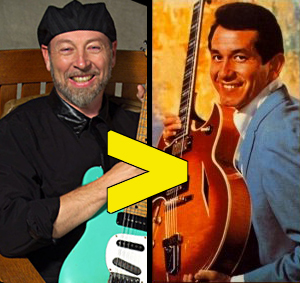 As for trends: I still have a soft spot for the folk-pop bubble of 63 and 64, and still think it’s a shame that we in the States never produced anything equivalent to the great British folk-rock bands — an American Fairport Convention, or a Steeleye Span or a Pentangle of our very own. They got Richard Thompson; we got Trini Lopez. Sucks to be us.
As for trends: I still have a soft spot for the folk-pop bubble of 63 and 64, and still think it’s a shame that we in the States never produced anything equivalent to the great British folk-rock bands — an American Fairport Convention, or a Steeleye Span or a Pentangle of our very own. They got Richard Thompson; we got Trini Lopez. Sucks to be us.
Dunphy – Segments of years fared better than the full years. The rock side of one year could stand up where the pop side fell down. I was surprised by the genre polarity of that.
Cummings – A few years in this series really stand out for me: 1963, simply because it was the disc that featured the greatest number of songs I hadn’t previously heard, and a lot of it is quite interesting; 1974, for reasons that become obvious if you go back and read my hackles-raised defenses of the craptastic music that defined my intro to pop radio; and 1975, which is perhaps the most consistently satisfying of all these comps.
Any major reassessments as a result of our close listening? Have your opinions on any of these (mostly very familiar) songs changed? Examples?
Dunphy – There was the occasional time where a reader would defend a song to the death, but honestly, I think so much of one’s first impression remains intact that an experiment like this serves to reinforce more than reassess.
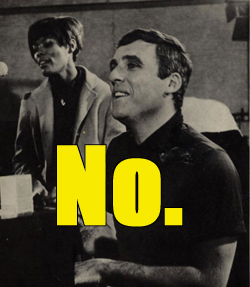 Cummings – I wish — and I know several of you also wish — that I could claim a new perspective on the Bacharach-David catalog, which we heard ad nauseam throughout the ’60s sets. But I cannot tell a lie: I still find their work intensely overrated, and particularly the Bacharach-David/Warwick oeuvre. As for the music of my own ’70s youth, I tried so hard through this series to listen to my beloved songs with new ears, to admit their awfulness … but, honestly, what fun is that? Isn’t clinging to the emotional connections of youth a key part of human existence — and isn’t our musical experience essential to maintaining those connections?
Cummings – I wish — and I know several of you also wish — that I could claim a new perspective on the Bacharach-David catalog, which we heard ad nauseam throughout the ’60s sets. But I cannot tell a lie: I still find their work intensely overrated, and particularly the Bacharach-David/Warwick oeuvre. As for the music of my own ’70s youth, I tried so hard through this series to listen to my beloved songs with new ears, to admit their awfulness … but, honestly, what fun is that? Isn’t clinging to the emotional connections of youth a key part of human existence — and isn’t our musical experience essential to maintaining those connections?
So don’t ask me to disparage “Seasons in the Sun” or “Rock Me Gently” or “Sister Golden Hair” or “Sky High,” because I will cut you.
Feerick – I’m not entirely sure I buy into your central thesis that “clinging to the emotional connections of youth [is] a key part of human existence,” but this isn’t the time or place to hash it out. Moving on.
Lifton – I usually put it in my remarks if that happened. On the positive side, I’ll say that “Shadow Dancing” has aged a lot better than I thought it would. On the negative, it would be all those late-60s, early-70s groups like the Guess Who and Three Dog Night, which I hadn’t really heard since I stopped listening to classic rock radio in the early-90s.
Feerick — Mostly, the stuff I liked, I ended up liking more. There were a lot of things I’d always sort of taken for granted before subjecting them to deep analysis — the first ones that spring to mind are ”Your Song,” and ”Wichita Lineman,” and ”That’s the Way I’ve Always Heard It Should Be” — songs I’d always liked, but which now, after I’ve taken the time and trouble to really break down the structure and the execution, strike me as works of genius.
Any pleasant surprises — songs you’d never heard before that really caught your ear?
Dunphy – Large portions of the disco stuff didn’t bother me as much as I thought it would. With hindsight a lot could be accepted as fun and inconsequential, but not painful at all.
Lifton – I can’t think of any offhand, but there were a lot of songs that I had heard growing up that I didn’t know the name of.
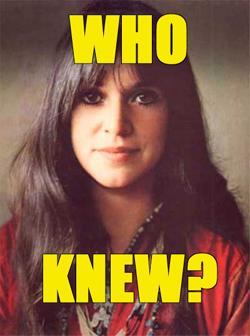 Cummings – To be honest, the most gratifying part of the “AM Gold” series for me — apart from trading sarcastic comments with all of you, and watching the gears clang around in the mind of Jack Feerick — has been hearing the grand sweep of story songs from the late ’60s through the mid-’70s. Sure, many of them are just silly, but taken as a whole they do translate the human experience into popular art in a way that’s worth noting. There are crackpot views of history (“The Night Chicago Died”), round-the-way attempts at social commentary (“Patches”), insightful evocations of a specific time and place and set of issues (“Ode to Billy Joe”) … and whatever “Shannon” represents.
Cummings – To be honest, the most gratifying part of the “AM Gold” series for me — apart from trading sarcastic comments with all of you, and watching the gears clang around in the mind of Jack Feerick — has been hearing the grand sweep of story songs from the late ’60s through the mid-’70s. Sure, many of them are just silly, but taken as a whole they do translate the human experience into popular art in a way that’s worth noting. There are crackpot views of history (“The Night Chicago Died”), round-the-way attempts at social commentary (“Patches”), insightful evocations of a specific time and place and set of issues (“Ode to Billy Joe”) … and whatever “Shannon” represents.
Feerick — Now that I clang my gears about it, there were a ton of these for me. One thing this series made me realize is just how many gaps there are in my pop knowledge. I mean, I’d heard of Melanie, of course, and I knew ”Brand New Key,” but somehow I’d never manged to hear ”Candles In the Rain,” which just blew me away.
(Sadly, I missed her recent visit to my hometown for the performance of her new autobiographical play Melanie and the Record Man, but you mark my words — this marks the beginning of a major reassessment of Melanie.)
Oh, and I really liked ”Message to Michael.” And ”All I Know.”
There will be many candidates for this one, I’m sure: Your most-hated song of this whole endeavor?
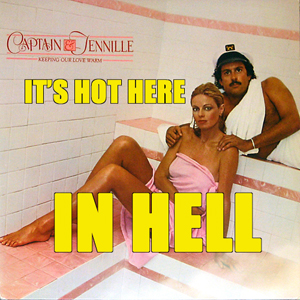 Holmes – “Muskrat Love” by Captain & Tennille, in a landslide. I can usually ignore a lot of the flotsam in these discs, but you’d have to strap me in a chair, a la Malcolm McDowell in A Clockwork Orange, to make me listen to it again.
Holmes – “Muskrat Love” by Captain & Tennille, in a landslide. I can usually ignore a lot of the flotsam in these discs, but you’d have to strap me in a chair, a la Malcolm McDowell in A Clockwork Orange, to make me listen to it again.
Dunphy – Tough one. Several subcategories rose to the top of that list: poor girl, social outcast, my dumb, dead wife that I loved and lost (“Honey”). Still hate “In The Summertime” but against the inanity of “Muskrat Love” it is hard to put it to the head of the chart.
Jon Cummings – The worst song from 17 years? It’s too easy to say “Muskrat Love” or “Honey” … so let’s go with the most inexplicable hits I’d never heard before, which have to be the Village Stompers’ “Washington Square,” Bob Lind’s “Elusive Butterfly,” and perhaps Smith’s bloooze version of ”Baby It’s You.”
Feerick – See, I loved the Smith track. Different strokes, I guess.
Lifton – Probably “Honey.” I’m just glad they had the good sense to keep Gary Puckett off the series.
Feerick – Yeah, ”Honey” is pretty bad. ”Muskrat Love” is only stupid, and there are plenty of songs out there that are only stupid:”Gypsy Woman,” ”You Don’t Have to Be a Baby to Cry,” ”Midnight at the Oasis,” ”Up, Up and Away” … But ”Honey” is actually morally reprehensible. Also hated ”The Worst That Could Happen,” for similar reasons. And ”We’ll Sing In the Sunshine,” which I’d blocked out until just now.
The one that utterly fills me with unreasoning hatred, though, is Ray Stevens doing ”Everything Is Beautiful.” From the intro with the little kids singing, the cheap, unearned uplift of it, coming from such a cynical, cornpone scumbag, just lowers the red mist before my eyes.
Lastly: If we were to do this again — a weekly group roundtable on a various-artists, multi-disc compilation — any thoughts as to what set or series we should tackle?
Let’s throw this open to the readers, too. What say you, guys and gals?
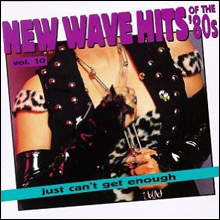 Dunphy – Probably Just Can’t Get Enough: New Wave Hits Of The ’80s — the only problem there is that AM Gold had charting hits, and therefore had some basis for asking “what were they thinking” whereas JCGE is a grab bag. To my knowledge, Tim Curry’s “I Do The Rock” never charted in the U.S.
Dunphy – Probably Just Can’t Get Enough: New Wave Hits Of The ’80s — the only problem there is that AM Gold had charting hits, and therefore had some basis for asking “what were they thinking” whereas JCGE is a grab bag. To my knowledge, Tim Curry’s “I Do The Rock” never charted in the U.S.
Michael Parr — Another vote for Just Can’t Get Enough. I’m pretty sure that 2-3 of us have this entire collection (I’ve got the Christmas and Halloween editions, as well) and would be willing to share it.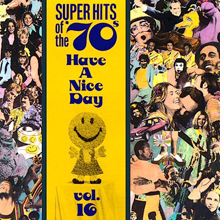
Annie Zaleski – I would cosign that series. It’s so good and so diverse. I’d write one of those up.
Tony Redman – There’s also Rhino’s 25-volume “Have a Nice Day” series of 70s songs. There’s some good stuff on there, but I don’t know how much overlap there would be with the Time-Life series we just did.
Feeerick — 25 discs? Jesus Christ, Redman, are you trying to kill me?
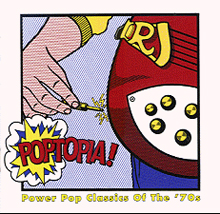 David Medsker – The Poptopia series is only three discs, but it’s loaded.
David Medsker – The Poptopia series is only three discs, but it’s loaded.
Cummings – I think Just Can’t Get Enough is too easy. We should go after the D.I.Y. series, which has such great diversity (and a lot of rather obscure stuff, too).
Zaleski – That’s Rhino’s series of city + genre compilations? Boston, NY, LA + power pop, etc. Used to be hard to find, now a bit more common. Some great stuff there, and I think it would get a fair amount of attention.
Feerick — D.I.Y. has indeed got some great stuff on it. And it’s only nine discs, so it wouldn’t be the work of years to cover it.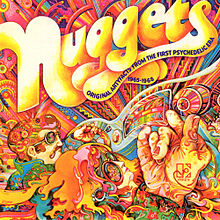
Plus, it makes sense to move forward. Part of what I’ve loved about this series is getting the overview of the evolution of pop music; if we’re going to do this, I’d want to continue on chronologically, and analyze where things went next — one stream of it, anyway — instead of going back and covering the 70s again. (Or the 60s; as much as the music nerd in me would love to analyze Nuggets track-by-track, it just doesn’t work as a follow-up to AM Gold.)
Dunphy – I’m still of the mind that in order for a project like this to work, the music has to have been accepted by the public in some sort of quantified way (in essence: the songs have to be top five hits). Part of our ongoing conversation about AM Gold was beyond the songs themselves, and into how/why the public embraced and rewarded them. Any series that lacks that particular constraint will have examples of good and bad material, but that falls on that series’ coordinator for poor judgment, which is a common failure in any endeavor.
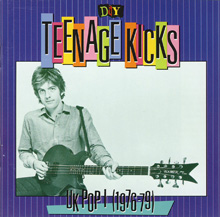 At least with AM Gold, we could say we didn’t like “Muskrat Love” but then have to consider that someone did…a lot. Enough so that the Captain and Tennille momentum with the record-buying public wasn’t at all derailed by it.
At least with AM Gold, we could say we didn’t like “Muskrat Love” but then have to consider that someone did…a lot. Enough so that the Captain and Tennille momentum with the record-buying public wasn’t at all derailed by it.
Dave Steed – I don’t know about that top 5 thing, otherwise ”Bottom Feeders” wouldn’t have been a success at all.
Feerick — Well, AM Gold is different from ”Bottom Feeders” by design. I think Dunphy’s on to something about tracking the evolution of audience taste, by playing up things that were decent-sized hits at the time, or have become radio staples in their afterlife. And, you know, the comment crew loves to talk about songs they already know and love and/or hate.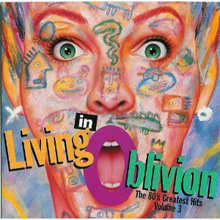
Which is why I’m leaning more towards something like the Living In Oblivion series, rather than D.I.Y. As much as I love Television and Magazine and the Skids and all of them, it’s a lo-o-o-ong leap from the pop of AM Gold down into the depths of the underground. The songs on Living In Oblivion or Just Can’t Get Enough were hits, of a sort — college radio hits, back when that kind of thing mattered. And a lot of them got heavy MTV airplay, which would allow us to discuss the videos as well as the music, which is one of the fun things about the history of pop as it progressed into the Eighties.
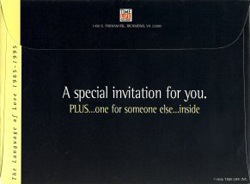 Holmes – By the by, here’s a list of some other Time-Life series. I would really love to interview someone from there on their selection process.
Holmes – By the by, here’s a list of some other Time-Life series. I would really love to interview someone from there on their selection process.
Jeff Giles – There’s one called Body Talk that came in a black paper sleeve. Oh my goodness.
Holmes – One of the volumes has “Slow Hand” and “All By Myself.” If that’s not sending a message…
Lifton – I’m up for any one of those that have already been mentioned.
Feerick — Dave Lifton, everybody. He’s easy like Sunday morning!





Comments